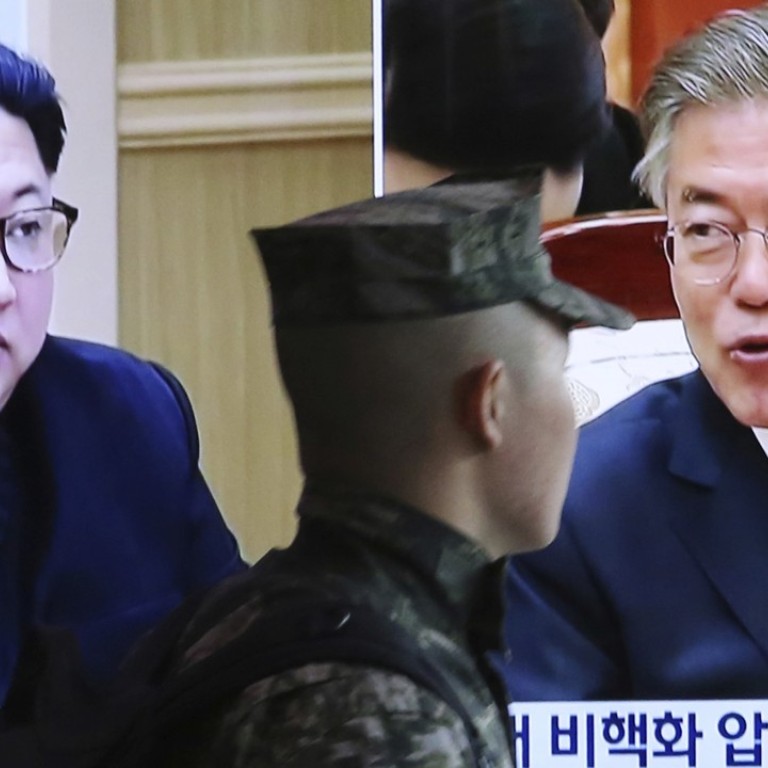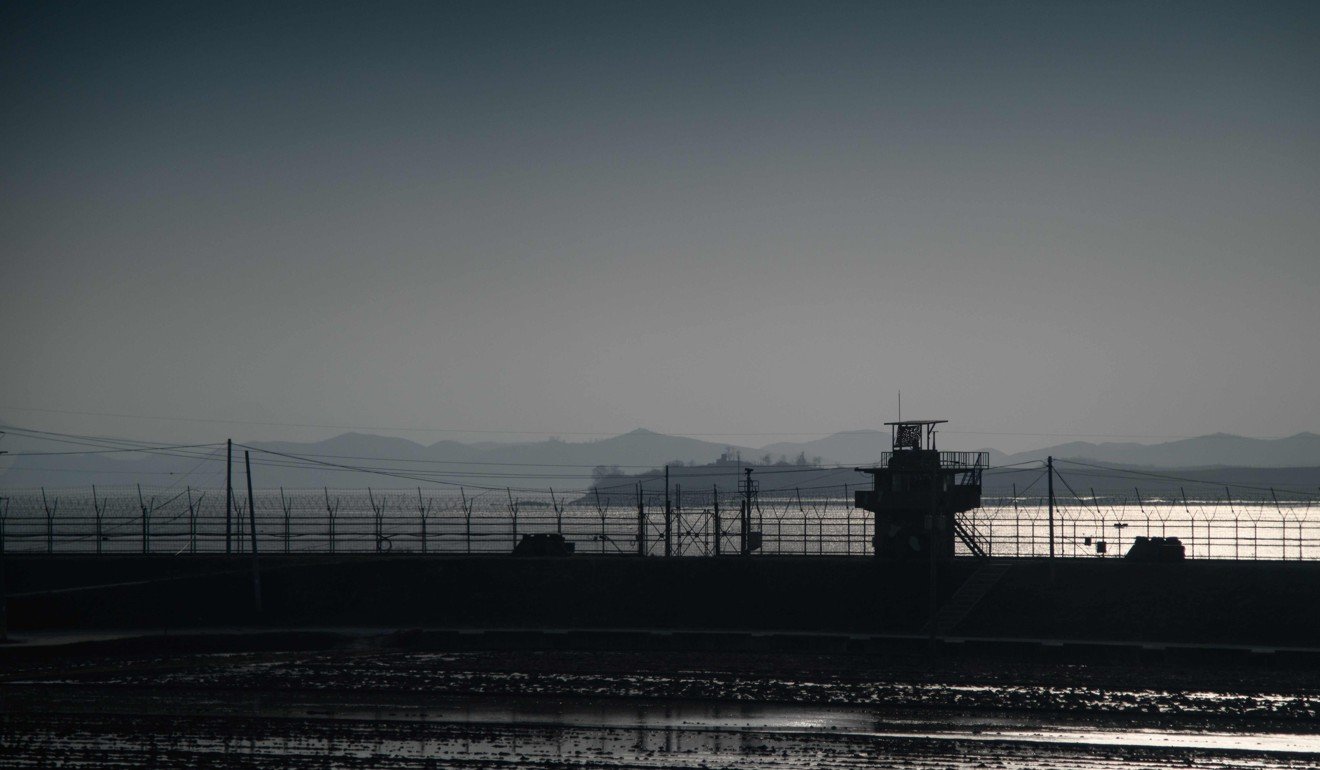
South Korean leader Moon says peace treaty with the North ‘must be pursued’
The 1950-53 war ended in an armistice rather than a peace treaty, leaving the two sides technically at war, and the demilitarised zone the two leaders will meet next Friday
A peace treaty to formally end the Korean war “must be pursued”, South Korean President Moon Jae-in said Thursday, ahead of a summit next week with Kim Jong-un, leader of the nuclear-armed North.
“The armistice that has dragged on for 65 years must come to an end,” Moon told media company representatives at the presidential Blue House, adding: “The signing of a peace treaty must be pursued after an end to the war is declared.”
The 1950-53 Korean war ended in an armistice rather than a peace treaty, leaving the two sides technically at war, and the demilitarised zone between them – where Moon and Kim will meet next Friday – bristles with minefields and fortifications.
But Moon signalled that a treaty would depend on the North giving up its nuclear weapons.
“If the inter-Korean summit or North Korea-US summit lead to denuclearisation,” he said, “I think that it won’t be too difficult to reach practical agreements in the big picture on creating a peace regime, normalising North Korea-US ties, or providing international aid for the improvement of the North Korean economy.”

Moon spoke after US President Donald Trump warned that his own much-anticipated summit with Kim would be called off if he did not think it would be “fruitful”.
“If I think that it’s a meeting that is not going to be fruitful, we’re not going to go,” Trump said.
“If the meeting, when I’m there, is not fruitful, I will respectfully leave the meeting.”
The question of whether the North is willing to give up what it calls the “treasured sword” of its nuclear arms is key.
Both South Korean and Chinese officials have cited Kim as saying he is committed to denuclearisation of the Korean peninsula – which has long been code for the withdrawal of US troops and Washington’s nuclear umbrella over its security ally.
For its part the US stresses it wants to see the complete, irreversible and verifiable denuclearisation of the North.
Watch: The building where peace may finally be made inside the Korean DMZ
Reaching any final treaty would be fraught with further complications.
While the US-led United Nations command, China and North Korea are signatories to the decades-old armistice, South Korea is not.
Both Pyongyang and Seoul claim sovereignty over the whole Korean peninsula, but a treaty could imply mutual recognition of each other.
The two Koreas will hold what will be their third summit since the 1950-53 Korean war next Friday, with a subsequent meeting planned between Kim and Trump – which would be the first time a sitting US president had met the North’s leader.

.png?itok=arIb17P0)